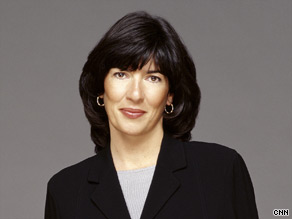Mapping the Contours of Thought…
[Note: This was originally published as a guest blog for the Open Knowledge Foundation – and I am blogging more frequently now at: Debategraph.us and The Independent].
Debategraph provides a novel way for geographically dispersed groups to collaborate in real-time in thinking through complex issues.
It does so by enabling groups of any size to externalise, visualize, question, and evaluate all of the considerations that anyone thinks might be relevant to the issues at hand – and by facilitating an intelligent, constructive dialogue around those issues.
Whether the group is a small team, an organization, a network of organizations, or society as a whole, the ability to augment our individual capacity to choose wisely in the face of the complex, multi-dimensional problems we confront today is ever more pressing.
Peter and I co-founded Debategraph in 2006 with the social entrepreneurial goal of creating a new form of public service communication in which the best arguments on all sides of any policy debate would freely available to all and continuously open to challenge and improvement by all.
In the iterative pursuit of this goal, we have been lucky to collaborate on a stimulating range of projects with amongst others: Amanpour on CNN, the Prime Minister’s Office, the White House open government team, The Independent newspaper, and with partners for the European Commission – with all of the public maps forming intersecting parts of a single, emerging graph of thought.
The field in which we are working with other teams is still nascent, and as pioneers together we are still exploring the two-fold challenge of making the tools as simple and natural to use as possible and of cultivating wider literacy and fluency in these structured expressions of thought.
There’s much still to be accomplished with both dimensions of this challenge; however the long-term potential that inspires us to pursue this field can be seen in two of our current projects.
In the first, we are working with the support of the UK Foreign and Commonwealth Office to develop a large scale map of the nuclear politics domain. Although the map is still in the early stages of development it already encompasses over a thousand ideas expressed from multiple perspectives – and its utility will grow significantly as the branches broaden and deepen to capture the expertise embodied in all of the relevant sub-disciplines and all of the different international perspectives on the key policy issues.
In the second, we have seeded a map with the new Coalition’s programme for government – and subsequently the Bills set out in the Queen’s Speech and the spending cuts proposed – offering a tantalising glimpse of how this collaborative mapping approach could be applied to track the entire policy agenda of the government across its full term in office.
New policy proposals can be added to the map as they emerge, and the map can track what happens when the proposals are implemented. Contradictions and inconsistencies between the measures being developed in different departments of government can be highlighted, and granular ratings can be used to signal the levels of support and opposition for the individual proposals and the salient reasons for this support or opposition.
It would fascinating, too, to begin to interconnect the map with the work being done on the Open Knowledge Foundation’s excellent Where Does My Money Go? project – as indeed it would be to interconnect the map on anthropogenic climate change with the CKAN Climate Change Group project – and if you would be interested in learning more about and/or collaborating on any aspect of our work, please don’t hesitate to get in touch.
Related articles by Zemanta
- Debategraph: Mapping the Mind of Government (independent.co.uk)
- Debategraph: Dissecting the Conservative – Liberal Democrat Coalition Agreement (independent.co.uk)
- Debategraph: Nuclear politics – where next? (independent.co.uk)
- Debategraph: Visualizing the second leaders’ debate (independent.co.uk)
- Visualizing the Prime Ministerial Debates (independent.co.uk)
CNN, Amanpour and Debategraph

![]()

“I want this show to stir the global conscience. I have witnessed so much that it’s time to start making real sense of it all”
As you may have spotted already, the collaboration between Amanpour and Debategraph launched on CNN last night, with Christiane’s new live global program featuring interviews with the Secretary General of Nato and the Prime Minister of Spain.
If you missed lat night’s episode, it’s available via Podcast here.
Debategraph’s working with Amanpour’s production team and viewers to create debate maps around the interviews and global issues addressed in the programs – and to provide a forum for non-linear, interactive and cumulative debate to complement the program’s thought-provoking analysis and interviews with the global leaders confronting those issues.
Christiane’s aims for the program “to offer multiple perspectives… and serve as the hub for a global community of inquiring minds, hungry for a more daring perspective and a strong, clear, thoughtful take on international stories” emphasize the resonance between our mutual approaches and the reason why Peter and I are delighted to be collaborating with Amanpour’s New York based production team.
The program airs on Monday to Thursday at 2100 CET, with a round-up of the best of the week on Fridays on CNN International and Sundays on CNN in the United States – and tonight’s show features interviews with Tony Blair, Terje Roed-Larsen (UN Middle East Envoy), Dan Meridor (Israeli Intelligence Minister), and Saeb Erakat (Chief Palestinian Negotiator).
In conjunction with the launch of program, Peter and I have released a new interface for Debategraph (which will also feature in the forthcoming WAVE climate change project for the European Commission). More on both later — but for now here’s a quick video introduction to the new Debategraph Stream interface:

![Reblog this post [with Zemanta]](https://img.zemanta.com/reblog_e.png?x-id=b8616fd4-5a1c-4727-8a11-fb6a2980caf1)

